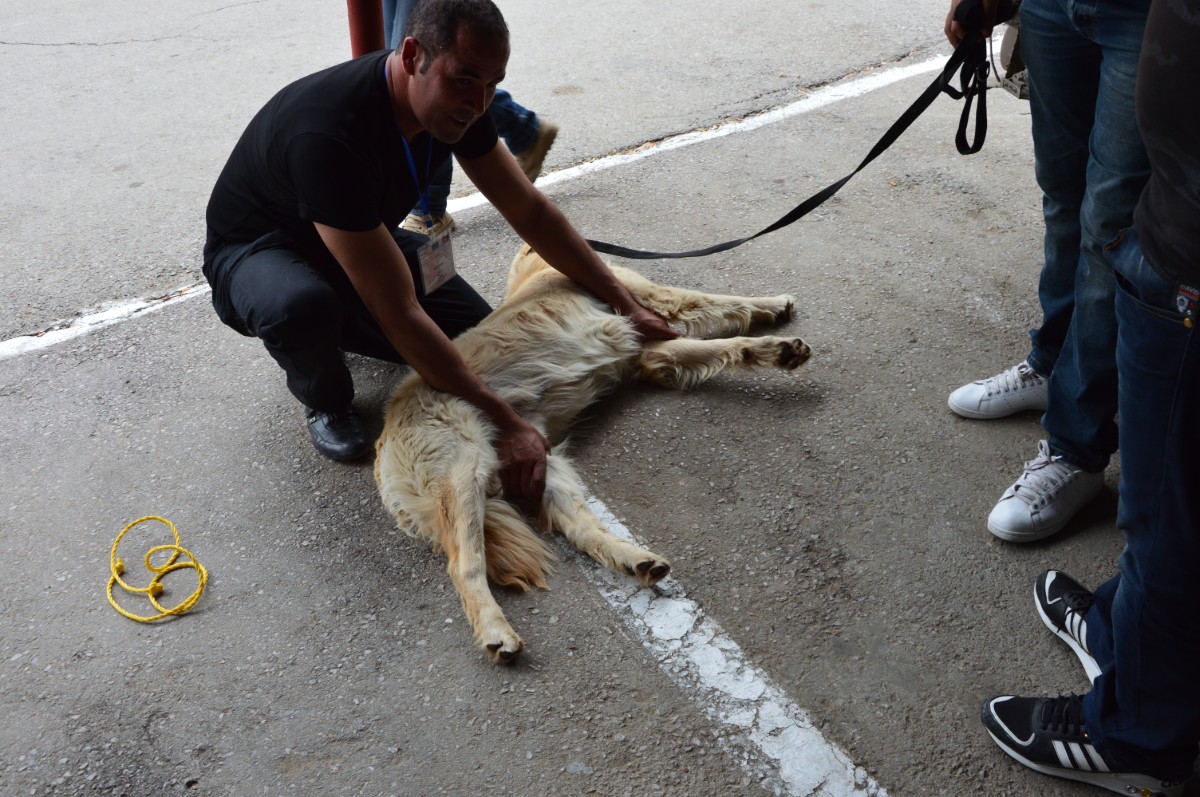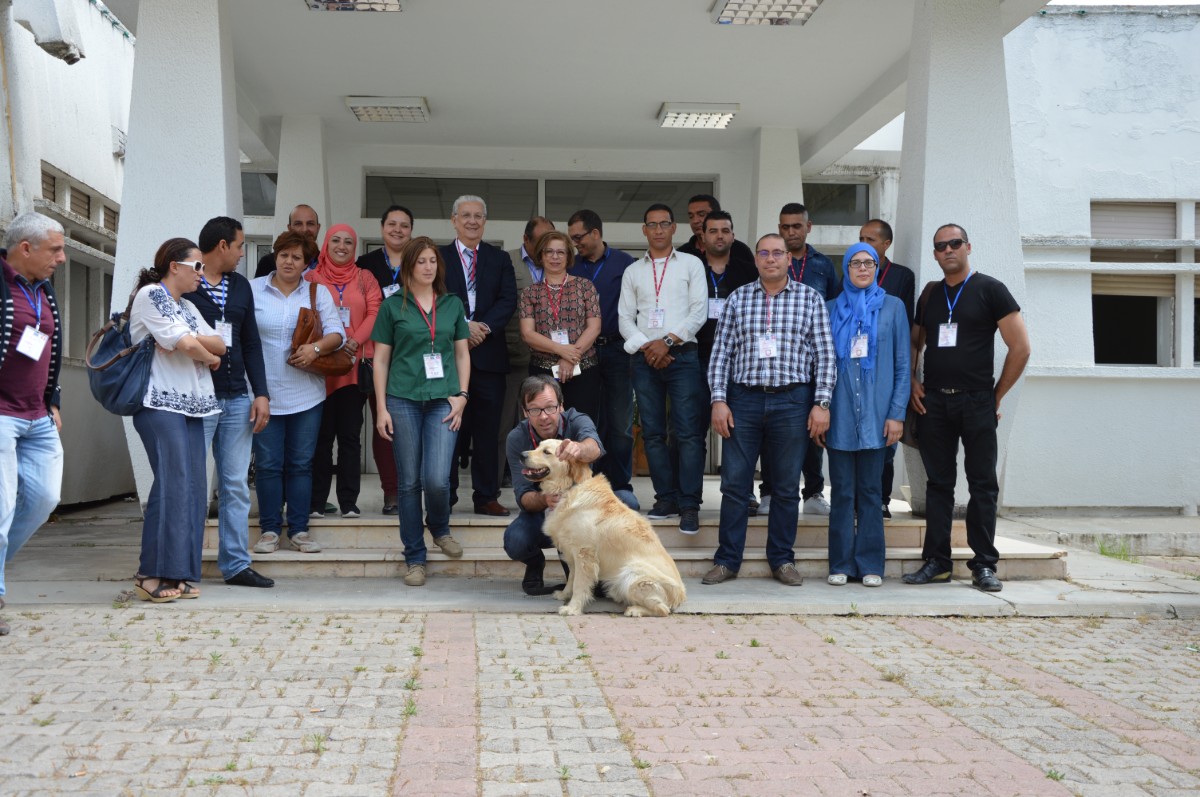Dog
Practical exercise of dog immobilization on the ground.
The OIE Sub-Regional Representation for North Africa organised in Tunis (Tunisia) on May 10-11 a workshop in stray dogs or aggressive dogs handling on the field in collaboration with the Municipality of Tunis and the Tunisian Veterinary Services.
This workshop was facilitated by Dr. Marie Petretto, animal behaviour specialist (Marwell Wildlife). It was attended by administrative officers of the Ministry of Agriculture and the Municipality of Tunis in charge on the field respectively of mass dog vaccination against rabies and stray dog population control.
Funding towards this workshop has been provided by the European Union, represented by the European Commission and European Parliament under the Strengthening Veterinary Services in Developing Countries (SVSDC) project.
Rabies is a widespread, neglected and under-reported zoonosis with an almost 100% case fatality rate in animals and humans. It remains endemic in the canine population of North African countries where nearly all human rabies infections are transmitted via rabid dog bites. Controlling the disease in dogs, therefore, would be the most cost-effective way to prevent rabies in humans
In line with the outcomes of the Global Conference on “Global elimination of dog-mediated human rabies – The Time is now!” held on 10-11 December 2015 in Geneva (Switzerland) and the resolution No. 26 on rabies entitled “Global elimination of dog-mediated rabies” adopted by the World Assembly of Delegates of the OIE during its 84th General Session held on 22-27 May 2016 in Paris (France).
The OIE pursues its commitment to the global fight against rabies through (a) the adoption and update of international standards related to rabies prevention and control, (b) trainings of OIE national Focal Points for Animal Disease Notification/Wildlife/Communication to increase respectively their knowledge of, their reporting on the rabies situation and the communication in their respective countries, (c) OIE laboratory twinning projects aiming at improving the capability and access of Member Countries to rabies diagnosis and scientific expertise through, (d) the contribution of the OIE Reference Laboratories to the development of safe and effective tests and control methods, and (e) the promotion and use of regional vaccine banks for dog vaccination.
The workshop aimed to train teams of administrative officers in charge on the field of dog handling and dog vaccination in an efficient way and in compliance with the OIE standards on animal welfare, with a focus on dogs which are generally not included in the vaccination campaign implemented every year in Tunisia because they are aggressive or difficult to catch.
A total of 23 participants attended this workshop: 14 administrative officers of the Tunisian Veterinary Services and 9 administrative officers of the Municipality of Tunis. For the first time, the OIE has the opportunity to make staff of the Ministry of Agriculture and staff of the municipality departments working together on the same topic: stray dogs or aggressive dogs handling on the field. Through practical working group sessions, the participants were trained to handle domestic dogs, to use the capture equipment, and to apply their knowledge on the field with an exercise aiming to catch stray dogs close to IRVT (Veterinary Research Institute of Tunis) where the second day of the workshop took place.
Short-term actions:
Mid-term actions:
At the end of the workshop two stray dogs were captured using trap cages.
Dog
Group picture with Lukas in front. All pictures © communication (oie) 2017, unless mentioned otherwise

